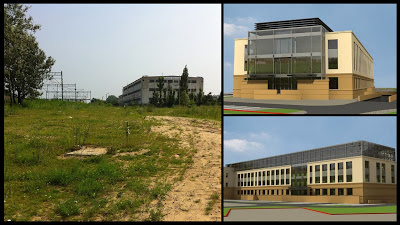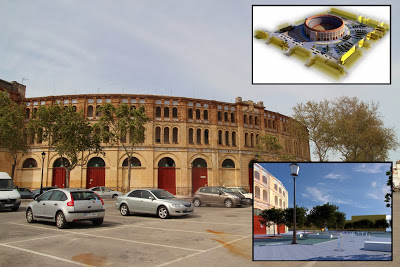 |
| Photo: Marcin Dąbrowski |
One of our members, Marcin Dąbrowski is about to publish two short articles reporting the findings from his research financed with the RSA Early Career Grant, which examined – for the first time – the use of Financial Engineering Instruments (FEI), the innovative tools for supporting urban development as part of EU cohesion policy.
The current context of crisis and austerity added urgency to the debate on the effectiveness of EU cohesion policy, prompting the search for new instruments and governance mechanisms. FEI were put forward as a solution for enhancing the quality of spending and ensuring more sustainable impacts of EU cohesion policy by offering revolving financial assistance and stimulating new kinds of partnerships between the public authorities, financial institutions and private investors.
Marcin’s research offers a particularly well-timed contribution, given that FEI are set to become a mainstream delivery mechanism in the upcoming 2014-2020 period, while we know little about how they operate in practice and how to make sure that they deliver on their promises.
Financial Engineering Instruments and multi-level governance: thawing the ice between the public and private actors in urban development policy?
Marcin’s first paper based on this research will be out in the upcoming issue of the Regions magazine. In this paper he summarises the insights from his study on Joint European Support for Sustainable Investment in City Areas (JESSICA), providing revolving funding for urban development projects. This research is the first scholarly foray into this topic and sheds light on the implementation of this instrument as well as its impacts on the patterns of governance at the regional level.
 |
| Source: Photo by author, 3D images by Marshal Office of Wielkopolskie Region |
JESSICA created scope for expanding the horizontal dimension of the multi-level governance of EU cohesion policy by stimulating cooperation of the sub-national authorities with financial institutions (e.g. European Investment Bank or domestic banks) and private investors. However, as the evidence from the Polish and Spanish regions suggests, its implementation proves extremely challenging and is hampered by numerous obstacles, coordination and capacity gaps, reluctance towards public-private cooperation as well as resistance among the policy actors on the ground accustomed to grant-based support. This in turn underlines the practical limitations of multi-level governance and of FEI as tools for promoting urban development.
EU cohesion policy – how to deliver more tangible results?
The second short paper, that will be published in the forthcoming issue of Regional Insights, is a commentary on the contested effectiveness of EU cohesion policy and also partly draws on examples from Marcin’s research on JESSICA.
 |
| Source: Photo by Author, 3D images: Impulsa, El Puerto de Santa Maria |
The paper, examines how administrative deficiencies and careless spending of EU funds to satisfy the desires of the local electorates negatively impact on the delivery and effectiveness of cohesion policy. It stresses that in order to best utilise the EU cohesion policy’s potential to support economic development in economically lagging regions, one needs to recognise and dedicate more efforts to address administrative capacity deficiencies, particularly at the sub-national level. Moreover, the paper argues that the national and regional need courage and strong leadership to start thinking beyond short-term political gains and prioritising most relevant and sustainable investment.
For more detailed information look out for the full-length peer-reviewed papers based on Marcin’s RSA Early Career project in 2014.
Marcin Dąbrowski is a research fellow at the Department of Urbanism, TU Delft. His research interests include EU cohesion policy, multi-level governance, regional and urban development in Europe and China and, most recently, governance of climate change policy in cities. He is the 2012 winner of the Routledge RSA Award for Early Career Excellence.